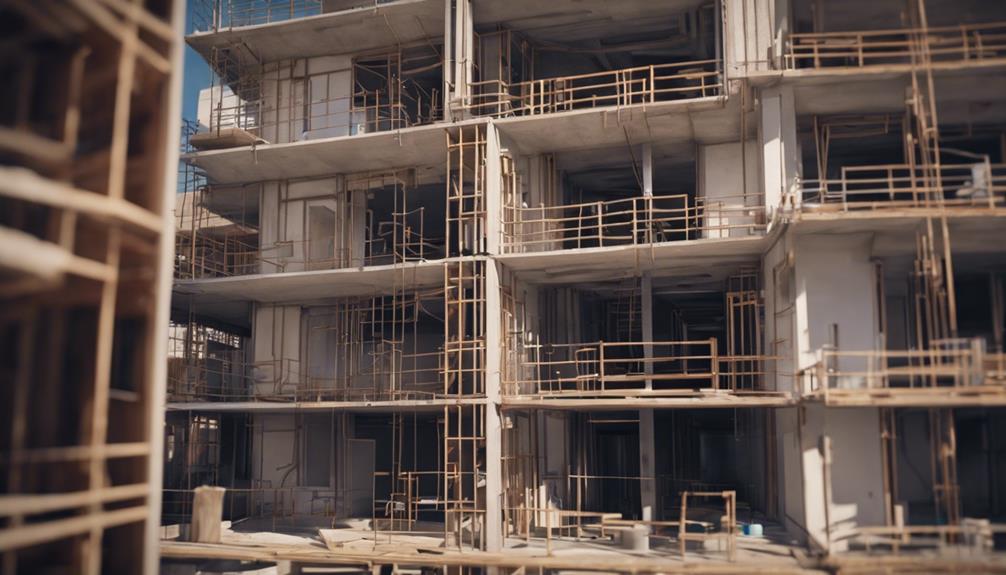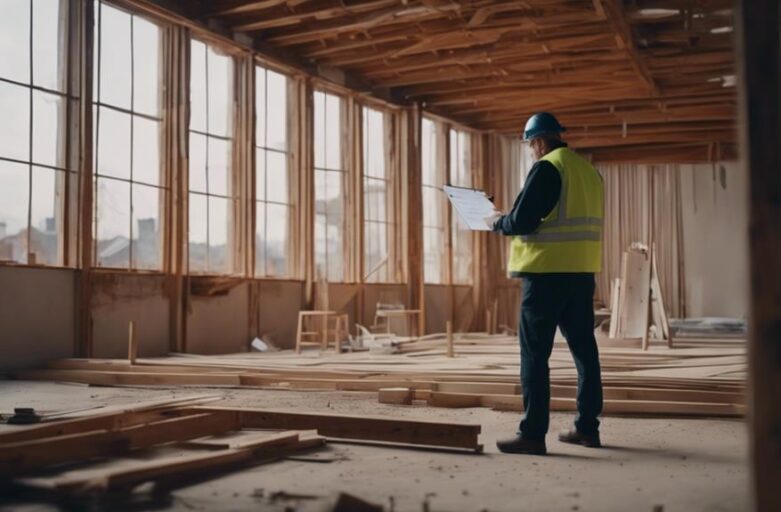The top three building codes for checking a house are the International Residential Code (IRC), the National Fire Protection Association (NFPA) codes, and your own town's rules.
The IRC helps make sure your house is well-built and saves energy.
NFPA codes help keep your house safe from fires.
Your local rules take care of any special needs your area might have.
If you follow these codes, your house check, or inspection, should go smoothly. Plus, these rules also help keep our planet healthy and make homes nice and safe.
So, get ready – you're about to learn a lot!
Key Takeaways
- The International Residential Code, or IRC, makes sure homes are safe, use energy well, and are built strong.
- Codes that are specific to certain places take care of safety and building needs that are unique to those areas. These codes go hand in hand with the ones used all over the nation and the world.
- The National Fire Protection Association, short for NFPA, has rules that focus on keeping homes safe from fire. These rules tell us how to prevent fires from happening.
- Important rules include having smoke alarms in each room, special circuit interrupters for circuits outside the house, and ways to quickly get out of the house in certain spots.
- Making sure these rules are followed is very important. It helps keep the building strong, makes sure safety rules are being followed, and ensures the materials used to build are of good quality.
Essential Residential Building Codes
If you've ever wondered about the rules for building a home, you're thinking about residential building codes. These rules are super important to make sure your house is safe and strong. It's like having a rule book for building a house, and everyone has to follow it to keep everyone safe.
For example, these codes tell you that every room in your house needs a smoke alarm. This way, you can't miss a fire alarm, no matter where you're in your house. They also tell you about things like Ground Fault Circuit Interrupters for your outdoor circuits. These are cool devices that stop you from getting shocked by electricity. And guess what? Building code officials check all of these during the Plan Review.
These codes also tell you about emergency exits and openings in important places like bedrooms, attics, and basements. This means you can always get out quickly and safely in an emergency.
And when we talk about how strong your house is, these codes are super important. They tell you not to use weak beams or joists, especially when you're changing your house. Think about it, you don't want your house falling down because someone used the wrong materials, right? So, these codes are all about your safety.
Importance of Code Enforcement
Understanding the rules for building houses is important. Now, let's talk about the role of code enforcement, which is crucial for making your house safe, sturdy, and energy-saving. Code enforcement is like a safety guard in the process of building houses, making sure all safety rules are followed.
Without code enforcement, your safety could be in danger. It stops situations where buildings may collapse, causing big accidents. The wholeness of your house stays intact because of regular check-ups that are part of code enforcement. So, there's no chance of cutting corners.
Code enforcement isn't just about safety. It also looks at how much energy your house uses. The rules for building houses are very strict about what materials should be used. This helps reduce the chances of fires and saves energy.
To make it clearer, let's look at this table:
| Why Code Enforcement is Important | How it Affects Building Houses |
|---|---|
| Makes sure safety rules are followed | Stops buildings from collapsing |
| Controls what materials are used | Reduces fire risks |
| Helps save energy | Lowers how much energy is used |
| Keeps the house in good shape | Makes sure the house is safe in the long run |
| Regular check-ups | Stops problems from happening in the future |
Top U.S Construction Codes

In the U.S, the International Residential Code (IRC) is a really important guide for construction. It sets the rules for how houses should be built to make sure they're safe, high quality, and energy-saving.
When you build a house using these rules, you're not just making a building, you're creating a cozy, safe home for families.
Think of it like baking a cake using a recipe. Following the IRC rules means your home-building project will pass inspections smoothly, just like a cake turning out perfect when you follow the recipe correctly. These rules cover everything! From how strong the house should be, how to make it fire-safe, to the details of plumbing and other inner workings. These aren't just suggestions, they're really important for keeping people safe in their homes.
Plus, IRC rules help you make houses that are good for the environment too! So, you're not just building safe homes, you're also helping to keep our planet green and healthy for future families.
Conclusion
Safety and quality are essential considerations when constructing homes. Codes are utilized to ensure that homes are safe, durable, and energy-efficient. In the U.S., three crucial codes are the International Residential Code, National Electrical Code, and International Energy Conservation Code. These codes play a significant role in guaranteeing that a home is not just a structure but a secure and pleasant living environment.
A home that adheres to these codes has been meticulously inspected and constructed, akin to a safety castle.


